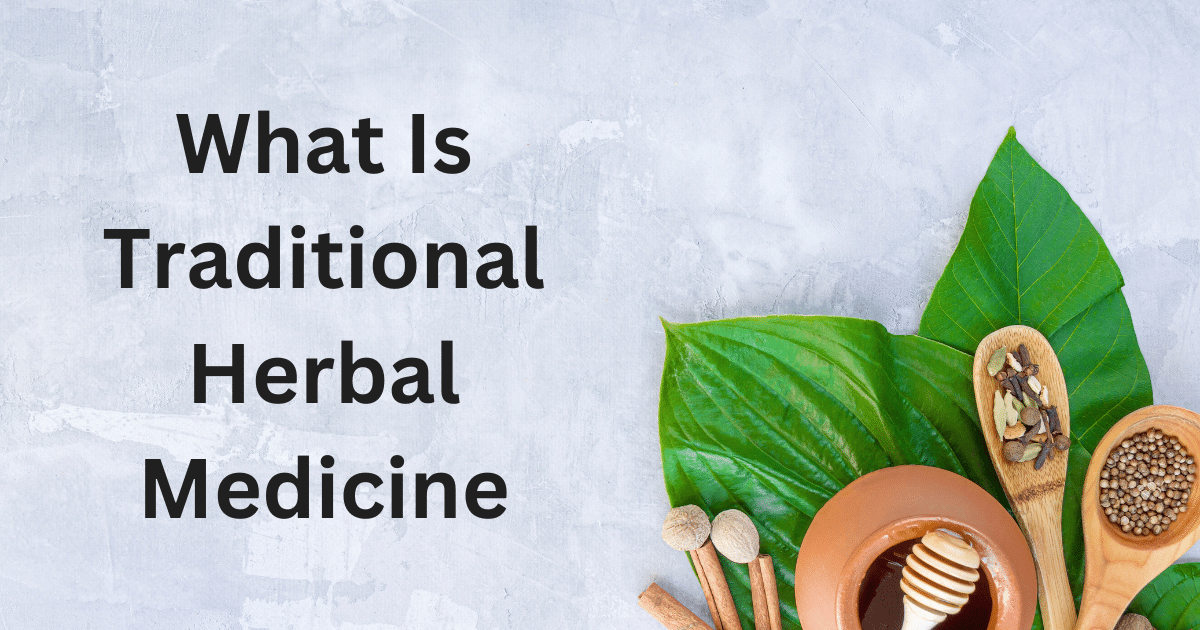What Is Traditional Herbal Medicine

Traditional Herbal Medicine, also known as Traditional Chinese Medicine (TCM), Ayurveda, or Indigenous Medicine, is an extensive and tried-and-true method of treatment that has been used for countless years by a variety of civilizations all over the world. This blog article will examine the fundamentals of conventional herbal therapy, its applications in contemporary society, and more.
Knowledge of Traditional Herbal Medicine
Traditional herbal Medicine is a time-honoured therapy method that uses minerals, herbal medicines, and other natural ingredients to treat and prevent disease. This method is firmly based on the idea that nature and the human body are intertwined, and that harmony between them is vital to wellbeing.
Important Ideas in Traditional Herbal Medicine
Holistic Approach:
Traditional herbal Medicine takes a holistic approach, treating the whole person, including emotional, mental, and spiritual health and physical symptoms.
Balance and Harmony:
It focuses on achieving balance and harmony with one’s body and the surrounding natural world. It is thought that imbalances are the underlying cause of sickness.
Individualized Treatment:
Traditional herbal Medicine recognizes that every person is unique and customizes therapies to meet those needs.
Nature’s Wisdom:
It relies on nature’s innate wisdom and supports the body’s natural healing processes using plants and other natural ingredients.
Traditional Herbal Treatment in Different Cultures
There are numerous traditional herbal therapy systems, each with its characteristics:
Traditional Chinese Medicine (TCM):
TCM uses herbs, acupuncture, and other methods to balance the body’s essential energy (qi) and achieve harmony between yin and yang.
Ayurveda:
Ayurveda, which has roots in India, balances the body’s doshas (vata, pitta, and kapha) through herbs, dietary regimens, and yoga.
Indigenous Medicine:
Indigenous peoples worldwide have their own herbal customs and frequently use local plants to treat certain medical conditions.
Relevance in the Contemporary World
Traditional herbal Medicine is still critical in Modern Medicine:
Holistic Health:
Focusing on holistic and preventive care enhances modern Medicine.
Cultural legacy:
Traditional herbal Medicine protects indigenous knowledge and cultural heritage.
Natural Remedies:
Many contemporary drugs come from substances found in plants due to conventional herbal remedies.
Conclusion
A tribute to our predecessors’ lasting wisdom is traditional herbal Medicine. It offers a holistic approach to health, emphasizing balance, harmony with nature, and specialized care. It serves as an essential reminder of our connection to the natural world and the possibility for healing it contains in today’s fast-paced and frequently isolated world.
Despite the significant advances in modern Medicine, many people looking for all-natural, holistic, and culturally diverse approaches to health and wellness still find value in the fundamentals of traditional herbal treatment. Traditional herbal Medicine continues to nurture body and mind, integrating the knowledge of the past with the healthcare requirements of the present and the future, whether it is employed as a primary therapeutic system or in cooperation with contemporary Medicine.




